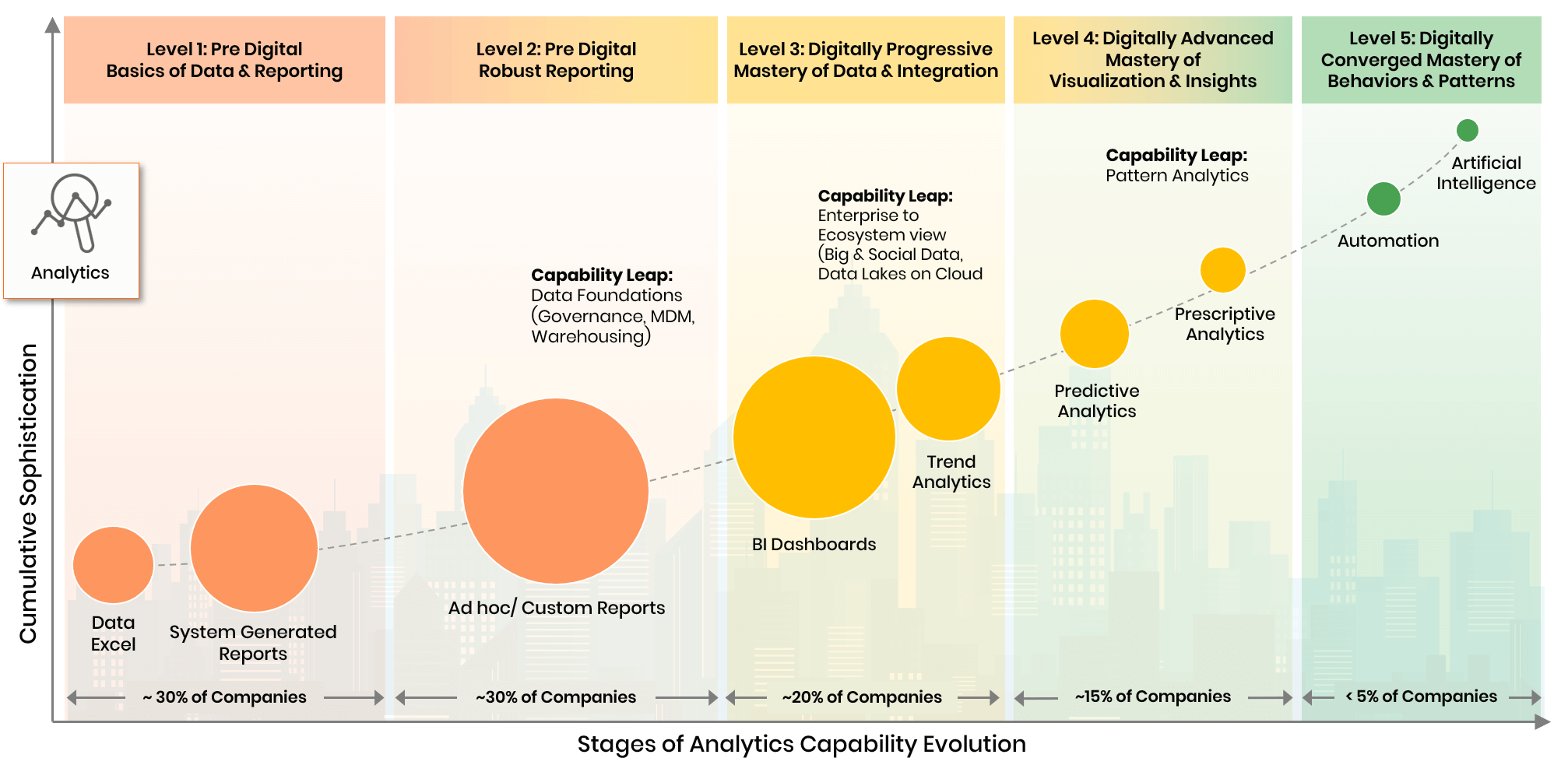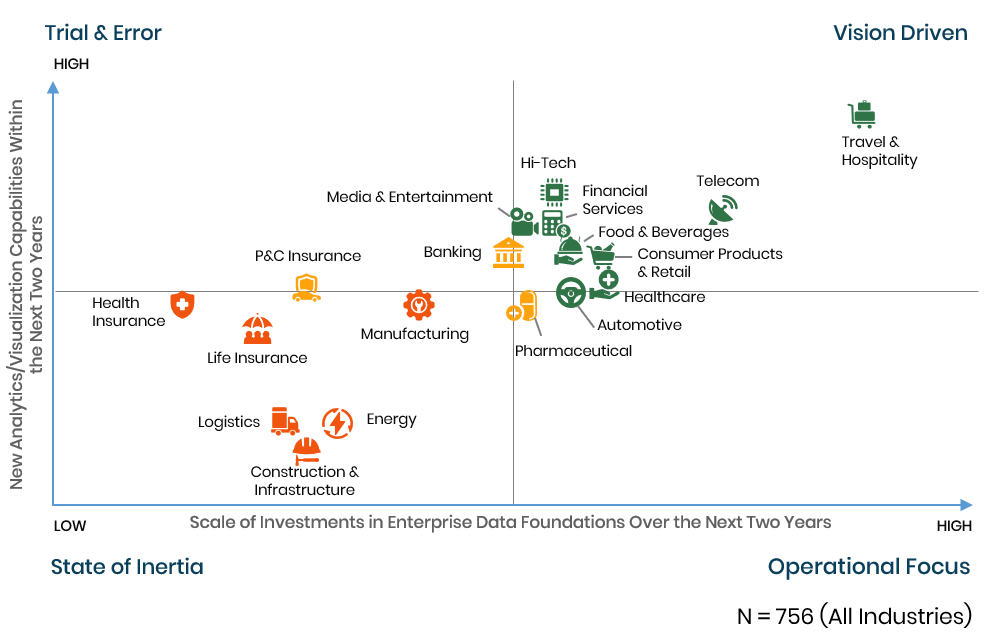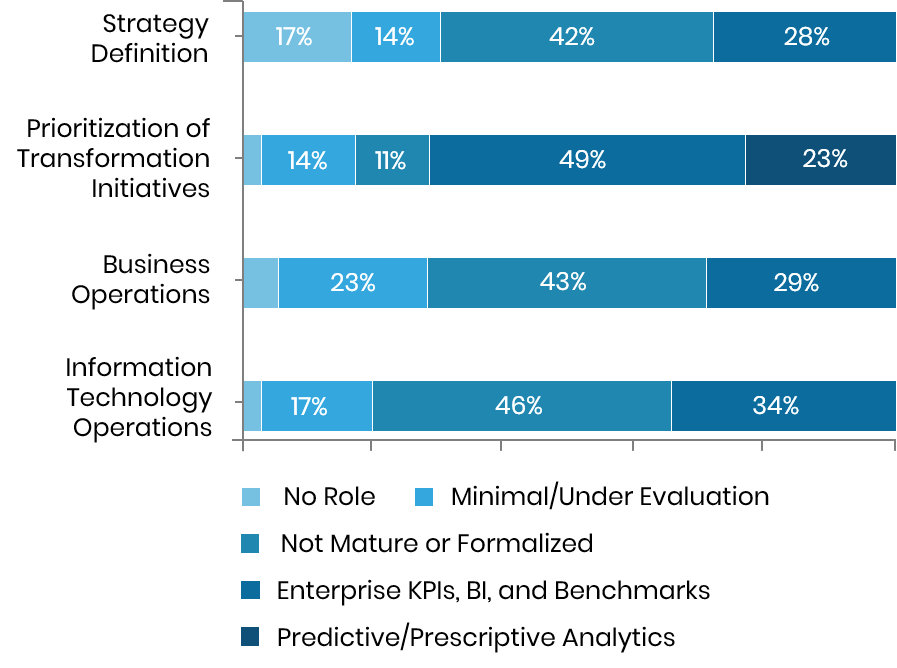Evolve Quickly and Systematically Across the Analytics Continuum
Digital Enterprise Evolution Model™ - Analytics Capability

Copyright © 2022 Trianz
Business analytics are playing a key role in digital transformations across industries worldwide. While there is a clear consensus that analytics hold the key to better understanding customers, products, services and competition, the challenge lies in how to approach the deployment of leading-edge analytics capabilities. To make matters worse, companies often approach analytics on a piece-meal basis or fall prey to technology hype.
The reality is that modern analytics used by successful companies are a result of a series of foundational capabilities deployed over time. As these capabilities evolved, so did the organizational cultures and the ability to effectively use analytics for business strategy, operational decision making, prioritization, and innovation.
Trianz understands this evolution deeply and brings a unique ability to calibrate your organization or analytics portfolio to help you benchmark against competition and evolve quickly and methodically to the right level of maturity.
Digital Champions use advanced analytics across the enterprise, while the average organization prioritizes a few key functions such as R&D or procurement.
We own one of the world’s largest databases on Digital Transformation and we understand Analytics best practices followed by the most successful companies.

Source: Trasers(Trianz Research)
Future Of Analytics across industries
Trianz has invested in creating Trasers(Trianz Research), one of the world’s largest databases on digital transformations with data from over 5,000 companies from 20 industries, We understand the state of digital transformations, investment priorities, the latest technologies and the best practices followed by the most successful companies in the world.
Industries such as high tech, media & entertainment and retail that are disrupting others are making aggressive investments in analytics.
Use of Analytics by Digital Champions
Across the globe, only 7% of companies or ‘digital champions’ are the most successful in their transformations. We understand how digital champions utilize predictive or prescriptive analytics across all levels of decision making.

Source: Trasers(Trianz Research)